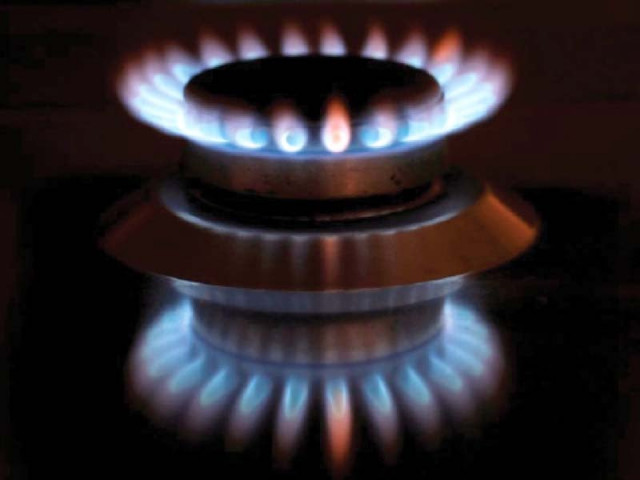People suffer as gas crisis persists
Businessman blames political chaos, saying shortage causing losses to industries

Industries and households have continued to face gas outages for more than five months, though the peak crisis time (winter season) has passed.
During winter, demand for gas rises significantly and authorities manage shortfall by diverting the fuel mainly to the households.
“For the first time in the history of Pakistan, businesses and households are facing gas outages during April,” Federation of Pakistan Chambers of Commerce and Industry (FPCCI) President Irfan Iqbal Sheikh said while speaking to The Express Tribune.
Consumers face acute shortage of gas during winter months (November to February) almost every year as authorities divert gas to households to enable them to use gas-based heaters and geysers.
However, supplies to businesses and households start normalising from the month of March.
“Political instability is a major reason for the current gas crisis,” he remarked.
Practically speaking, at present, there is no government in the country. The new government is busy finalising which ministry should be given to which political party.
“Gas crisis is worsening owing to delay in the allocation of ministries and the formation of federal cabinet,” he said.
FPCCI and other industrialists have written letters to the secretariats concerned several times. However, the officials available in the ministries are taking no action and told The Express Tribune that they were waiting for policy instructions from the new government.
The fuel crisis is causing financial and production losses and industries are either using alternative expensive fuels like diesel or waiting for the normalisation of gas supplies, he said.
Islamabad-based energy expert Ammar Khan said that a significant reduction in import of gas had been witnessed during the ongoing season for different reasons and continuous depletion of domestic gas reserves amid no new big discovery have led to the worsening of the gas crisis.
He recalled that a couple of global gas suppliers, in violation of long-term agreements, had cancelled the scheduled shipments over the past few months after gas prices shot up in the world market.
Similarly, Pakistan avoided buying expensive gas from global spot markets as gas imported under long-term agreements remained cheaper.
Thirdly, the gas reserves have continued to deplete at a rate of around 9% per year in the country while exploration and production companies have failed to make a big discovery that can help overcome the crisis.
Gas supplies from local fields stood at 3,427 million cubic feet per day (mmcfd) during the week ended April 8, 2022, according to the latest numbers compiled and reported by Arif Habib Limited (AHL).
Supplies were 5.3% higher compared to the previous week “amid resumption of production in Uch post-annual turnaround (ATA) at Uch Power Ltd II.””
“Pakistan meets almost 20% (1,200 mmcfd) of its gas requirement through imports, which have suffered delays,” Khan pointed out.
Gas prices are hovering around $20-22 per million British thermal units (mmbtu) in the global market while Pakistan supplies imported gas to its consumers at around $10 per unit.
Authorities usually supply subsidised gas to the households. “The government should revise upwards the price of imported gas to make imports sustainable and overcome the crisis in the long run,” he suggested.
Secondly, the government should allow the setting up of new LNG import terminals, as the country has only two terminals at present, which are insufficient to meet the growing requirement for imported gas.
Pakistan’s total demand for gas is estimated at over 6,500 mmcfd against supplies of around 4,650 mmcfd. Gas marketing firms – Sui Southern Gas Company (SSGC) and Sui Northern Gas Pipelines Limited (SNGPL) – manage the shortfall by resorting to outages of gas supplied to CNG fuel pumps and non-export industries.
SSGC reported last week that some of its customers have complained of low gas pressure at Sehri (early morning) and Iftaar (evening).
“It is important to mention that customers who are generally located at the tail end of the company’s distribution lines are faced with low pressure issues due to sudden and manifold increase in gas use for cooking purposes in millions of homes and commercial outlets at similar timings.”
Moreover, the constantly depleting gas reserves and occasional operational issues in some gas fields have compounded the issue, resulting in widening of the demand-supply gap, it said.
Published in The Express Tribune, April 16th, 2022.
Like Business on Facebook, follow @TribuneBiz on Twitter to stay informed and join in the conversation.




1733130350-0/Untitled-design-(76)1733130350-0-208x130.webp)













COMMENTS
Comments are moderated and generally will be posted if they are on-topic and not abusive.
For more information, please see our Comments FAQ